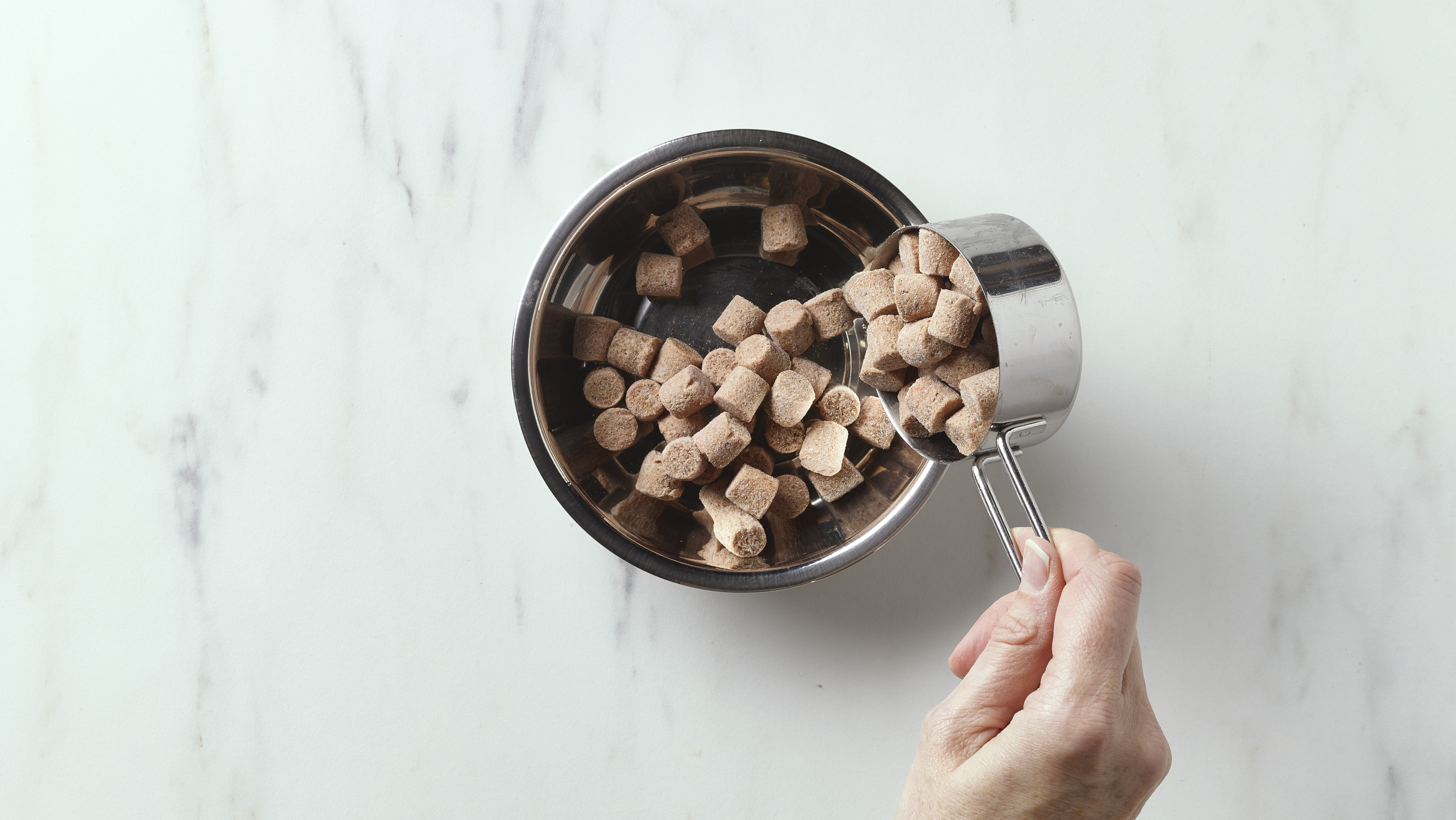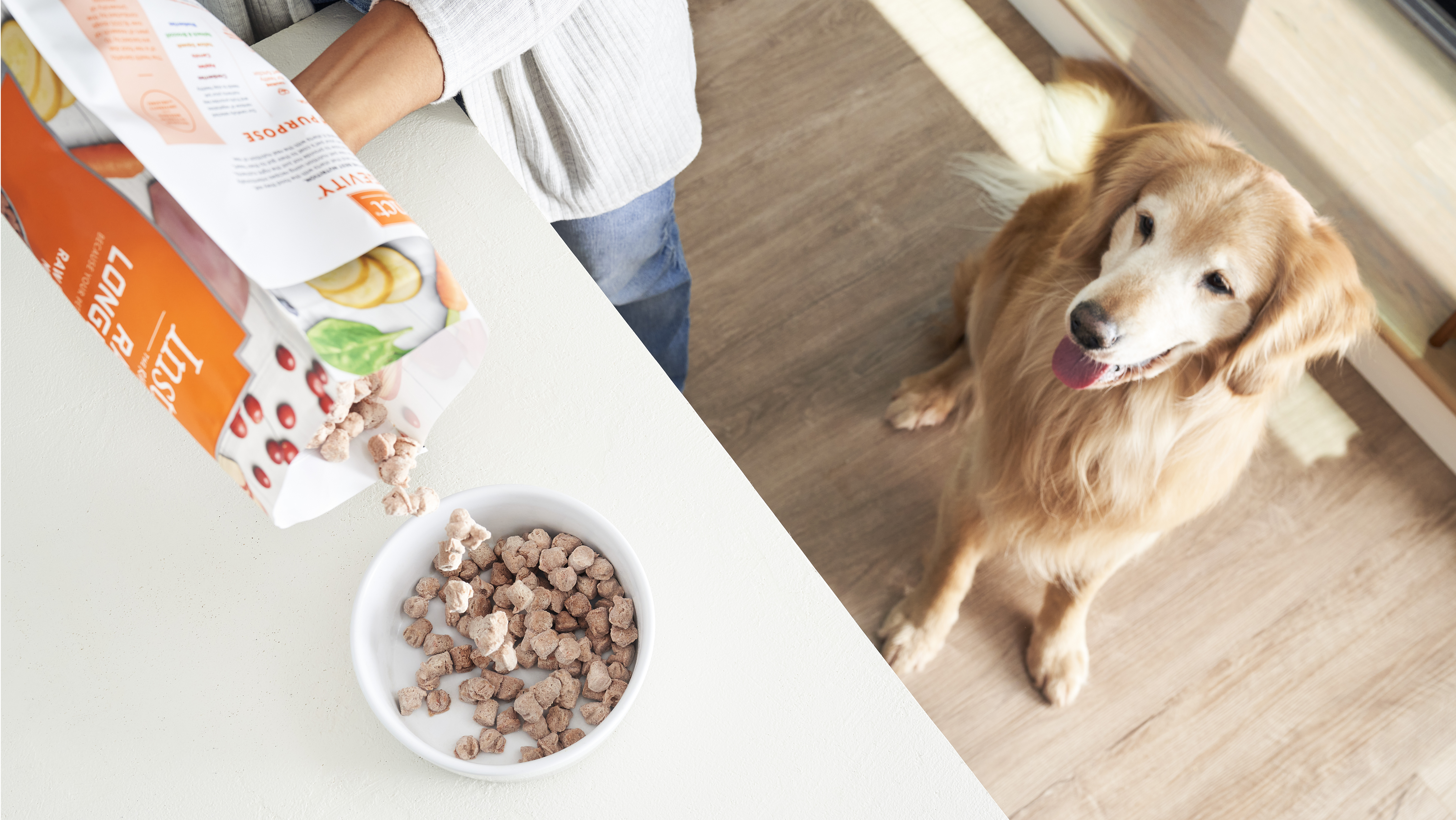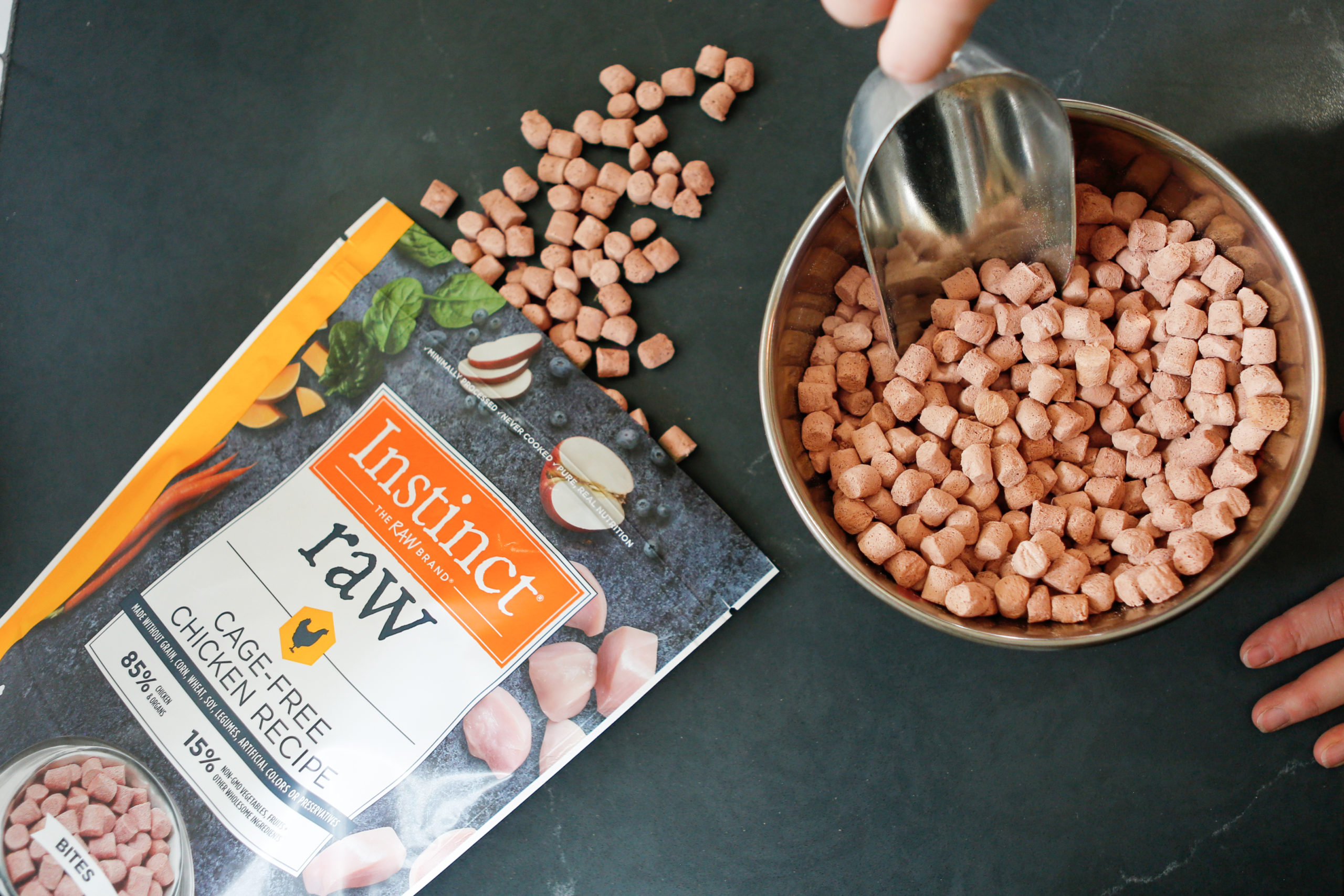A Fresh Take on Raw – Introducing Instinct® FreshRaw™ Meals!
Today’s pet parents want real, whole-food nutrition that they can recognize and trust. That’s exactly what NEW Instinct® FreshRaw™ Meals delive...
Read More





As pet parents, we can all agree on one thing: We only want what’s best for our pup. But between all the emerging trends and ever-evolving research, it’s easy to feel confused about what’s true and what’s false when it comes to dog health. Because diet is always the first line of defense, we decided to home in on debunking the myths that stand between us and a well-fed pet. Specifically, we took a closer look at the raw food diet, with the help of Instinct Pet Food, to clear up five myths surrounding how we should be feeding our dogs:
Many pet parents assume that kibble is the better choice for their pet. But in reality, raw dog or cat food, like Instinct Raw, offers many health benefits that kibble does not. A raw food diet incorporates natural, whole-food ingredients that are never cooked or heated; this means the nutrients are kept intact, translating to a higher nutritional value. Research has shown that for dogs, raw pet food supports healthier cholesterol levels and lowers the chances of developing inflammatory bowel disease (IBD), as well as environmental allergies, in adulthood.
Can puppies eat adult dog food? Can kittens eat adult cat food? A common myth about raw pet food is that puppies and kittens can eat the same raw food as adults. In fact, many raw pet foods are balanced for “all life stages,” meaning they can be fed to both adults and puppies/kittens—but that’s not necessarily best. Puppies and kittens grow quickly, maturing to adulthood within one to two years. For optimal health and development during that short period, proper nutrition is critical. That means we should be feeding our furry loved ones a diet that specifically supports the nutritional needs of a growing pup—which are different from those of an adult pet. For instance, the Instinct Raw puppy formula consists of responsibly sourced ingredients like natural DHA for eye and brain development, cage-free chicken for healthy muscle and bone growth, calcium and phosphorus for strong bones and teeth, and more.

It’s true that preparing raw food yourself poses a few potential health risks. For starters, sufficient research is needed to understand exactly what nutrients must be included in your pet’s meal. Another main concern is the possibility of harmful pathogens if the raw meat is not treated properly—a process that is difficult to do at home, especially without compromising the nutritional value.
But if you leave it to the experts and feed a premade raw meal like Instinct Raw, you can rest easy knowing your pet’s food is perfectly safe and nutritionally balanced. Instinct uses cold-pressure technology (aka high-pressure processing, or HPP) to ensure their raw food formulas are safe and free from bacteria. Their raw food is also prepared, produced, and handled to the highest possible food safety and quality standards, making them the only raw pet food company in North America to achieve an “excellent” Safe Quality Food (SQF) food safety rating.
Although some people are aware of the benefits of raw pet food, they may not have made the switch yet because they are under the impression that it requires more prep. But actually, the raw diet can be very quick and easy. With complete and balanced nutrition crafted by experts, Instinct’s Raw Bites come prepared frozen and are ready to scoop and serve after only a few minutes of thawing. Easy-peasy—and worth it for a happy, healthy pet!

Some may initially believe that raw pet food is just a way of capitalizing on the human diet fad craze. But the truth is, raw pet food has a higher nutritional value, offers long-term health benefits (see myth #1), increases mealtime excitement, and promotes more pettable skin and coat. Despite the research, as well as the personal reports from raw-feeding pet parents, ultimately the proof is in the pudding. If you’re still skeptical, test out the raw diet on your dog or cat to witness the benefits firsthand. But buyers beware… Side effects may include excessive tail-wagging, anticipatory mouth-watering, and howls of excitement.
The pet food industry can be just as overwhelming, if not more so than the human food industry—particularly because our barking BFFs can’t communicate how they’re feeling or what they like. With new health information and pet food brands coming out every day, it’s hard to know whom to trust and where to start when it comes to your pet’s health. But turning to current research in combination with trusted testimonials is the best way to make educated food choices for our four-legged friends. At the end of the day, the most important thing is their health and their happiness—and it’s up to us to make that happen.
Originally published by MindBodyGreen
Our site uses cookies to improve the website experience, products, to personalize content and ads, to provide social media features and analyze our traffic. By agreeing to the use of cookies on our website, you direct us to share information about your use of the website with our social media, advertising and analytics service providers. For more information, please see our Privacy and Cookie Policy.
Accept